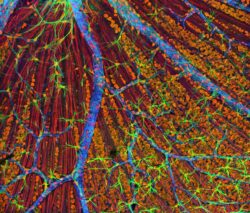Rising Cases of Anal Cancer Spark Concern
Anal cancer, a rising health concern attributed primarily to HPV infection, is witnessing an alarming increase in incidence. This article explores the various aspects of this relatively rare malignancy, from prevention and treatment to the role of HPV. Drawing from PDQ Treatment Information for Patients, it aims to provide an in-depth understanding of anal cancer, its causes, and potential preventative measures while underscoring the need for additional research and clinical trials.

Key Takeaways
- Anal cancer incidence is increasing, and HPV is a major risk factor.
- Smoking and weakened immune system also increase the risk of anal cancer.
- Treatment options for anal cancer include surgery, radiation therapy, and chemotherapy, with emerging therapies like immunotherapy and targeted therapy.
- HPV infection is the main risk factor for anal cancer, and preventing HPV through vaccination is crucial in reducing incidence.
Understanding the Increase in Anal Cancer Cases
In order to comprehend the escalating number of anal cancer cases, one must first acknowledge the significant role played by human papillomavirus (HPV) as a major risk factor. Understanding the rising trend is crucial as it provides clarity on the increasing prevalence of this disease. HPV, a common sexually transmitted infection, has been identified as a primary cause, contributing significantly to the surge in cases. Research indicates a correlation between HPV infection and the development of anal cancer. Moreover, certain lifestyle factors such as smoking and a weakened immune system can increase the risk. Thus, the rising trend in anal cancer cases highlights the need for increased awareness and preventive measures against HPV and other risk factors.
Identifying the Major Risk Factors
Major risk factors for anal cancer include infection with human papillomavirus (HPV), smoking, and a compromised immune system. Persistent HPV infection, particularly high-risk types, significantly increases the likelihood of developing this cancer. Smoking, another key factor, can double the risk. Immunosuppression, due to conditions like HIV, also escalates the risk.
Understanding these risk factors is crucial for preventing and diagnosing this cancer early. Being aware of them can help individuals make informed decisions about lifestyle changes and screening. Moreover, for those diagnosed with anal cancer, it can guide their treatment options. It's essential to note that while these factors increase risk, they do not guarantee cancer development. Consequently, routine check-ups, even without risk factors, are vital in ensuring early detection and treatment.
Available Treatment Options for Anal Cancer
While someone diagnosed with anal cancer might feel overwhelmed, there are several treatment options available that can effectively manage and even cure the disease. Understanding treatment effectiveness is crucial and depends on factors like the stage of the cancer and the patient's overall health. Standard treatment options include surgery, radiation therapy, and chemotherapy. In some cases, a combination of these is used. Emerging therapies for anal cancer are also in development, promising to enhance treatment outcomes and minimize side effects. These include immunotherapy, targeted therapy, and experimental treatments available through clinical trials. It's important to discuss these options with healthcare providers to decide the most suitable treatment plan. Despite the rising cases, advancements in therapy offer hope for anal cancer patients.
The Role of HPV in Anal Cancer
Understanding the role of the Human Papillomavirus (HPV) in causing anal cancer is critical to both prevention and treatment strategies. The link between HPV and anal cancer is well established as HPV infection is the major risk factor for this form of cancer. Notably, persistent infection with certain high-risk types of HPV can lead to the development of anal cancer. The role of HPV in anal cancer is evident in the fact that the virus can cause changes in the normal cells within the anus, turning them into cancerous cells. Therefore, preventing HPV infection, through methods such as vaccination, is key to reducing the incidence of anal cancer, highlighting the significant role HPV plays in this disease.
Prevention Strategies Against Anal Cancer
There are several effective strategies that can be employed to prevent the development and spread of anal cancer, including early detection and vaccination against HPV. Understanding HPV transmission is crucial, as the virus is responsible for the majority of anal cancer cases. Vaccination against HPV, particularly for adolescents, can drastically reduce the risk. Regular screenings and early detection also play a pivotal role in preventing the disease's progression. Lifestyle factors significantly impact the risk of developing anal cancer. Smoking, for instance, can increase the chances, while a healthy diet and regular exercise can reduce them. Therefore, combining these prevention strategies can effectively mitigate the risk and help in controlling the rising cases of anal cancer.
The Importance of Screening for Early Detection
Regular health check-ups and anal cancer screenings play a crucial role in early detection, thereby enhancing treatment success and survival rates. However, the need for increased education around anal cancer is imperative to promote regular check-ups. Despite the rise in anal cancer cases, the awareness of its risks and the importance of screening remain low. Increasing education on this topic can help individuals understand the potential threats and the benefits of early detection. This knowledge can encourage more people to seek regular check-ups, ensuring any potential issues are identified at an early stage. By promoting regular check-ups and increasing awareness, we can contribute to reducing the number of anal cancer cases and improving the overall health of individuals.
Analyzing Statistical Data on Anal Cancer
How accurately does the current statistical data reflect the increasing incidence and prevalence of anal cancer globally? A comprehensive review of the data is key to understanding the impact of socioeconomic factors on anal cancer incidence. Higher incidence rates are often associated with disadvantaged socioeconomic groups, suggesting access to healthcare and screening tools may play a significant role. Additionally, exploring the role of genetics in anal cancer development can provide an in-depth understanding of the disease's progression. Certain genetic predispositions and mutations are increasingly being associated with a higher risk of developing anal cancer. However, further research is needed to unravel the complex interplay between these factors and their contribution to the rising global trend of anal cancer.
Clinical Trials and Research on Anal Cancer
Several clinical trials and extensive research efforts are currently underway, and they aim to provide a deeper understanding of anal cancer, enhance treatment strategies, and ultimately, curb the rising incidence of the disease. As per the latest research findings, a significant correlation between HPV infection and the development of anal cancer has been asserted. These clinical trials are focusing on improving the efficacy of existing treatments, and discovering new ones, particularly targeted therapies and immunotherapies. They are also investigating the potential of preventive measures against HPV. The findings from these trials are expected to provide valuable insights, contribute to medical literature, and promote evidence-based practices in anal cancer management. Such research is critical in our collective fight against this disease.
A Closer Look at Approved Drugs for Anal Cancer
While there is an increasing need for more effective treatments due to the rising cases of anal cancer, it is essential to examine the drugs currently approved for its treatment. Exploring drug advancements, it is evident that chemotherapy drugs such as fluorouracil and mitomycin are often employed, as well as targeted therapies like cetuximab. These drugs can be used alone or in combination, depending on the patient's condition and the stage of the disease. New research findings suggest that immunotherapy drugs, such as pembrolizumab, may also be effective in treating anal cancer. However, these treatments are not devoid of side effects and can significantly impact a patient's quality of life. Therefore, the search for safer and more effective treatments continues.
How Public Awareness Can Help in Anal Cancer Prevention
Increasing public awareness about anal cancer can significantly contribute to its prevention by encouraging early detection and promoting lifestyle changes that reduce risk factors. Public education plays a crucial role in this process, providing information on the causes, symptoms, and preventative measures associated with this disease. Simultaneously, community outreach initiatives can help disseminate this knowledge to wider audiences, particularly in underserved areas. These programs can include HPV vaccination campaigns, regular screening promotions, and lifestyle education to mitigate risk factors. These combined efforts in raising awareness and education can lead to a decrease in the incidence of anal cancer, fostering a healthier public. The fight against this rising concern begins with awareness, and everyone has a part to play.
Frequently Asked Questions
What Are the Common Symptoms of Anal Cancer That Individuals Should Be Aware Of?
Common symptoms of anal cancer can include rectal bleeding, anal discomfort, and changes in bowel habits. Advanced diagnostic techniques allow for early detection and improved patient outcomes. These techniques, coupled with recent treatment innovations, enhance symptom management and offer greater chances of recovery. However, it is crucial for individuals to seek immediate medical consultation if they experience ongoing or severe symptoms, as early detection is key in successful treatment.
Are There Specific Populations That Are More Susceptible to Anal Cancer?
Certain populations are indeed more susceptible to anal cancer due to various factors. Predominantly, individuals with a history of human papillomavirus (HPV) infection, compromised immune systems, and certain genetic factors are at a higher risk. Regular screening methods, such as digital rectal exams and anal Pap tests, are recommended for high-risk groups to facilitate early detection and treatment of potential cancerous changes.
What Potential Side-Effects Are Associated With the Approved Drugs for Anal Cancer Treatment?
Approved drugs for anal cancer treatment may cause a myriad of side-effects, like nausea, fatigue, hair loss, and compromised immune function. Furthermore, a significant concern is the development of drug resistance, which can render treatments ineffective over time. Patient compliance is another critical aspect, as the severity and frequency of side-effects can deter patients from adhering to the prescribed treatment regimen. Therefore, managing these side-effects is crucial for effective treatment.
What Lifestyle Changes Can Help in Reducing the Risk of Anal Cancer?
Lifestyle changes can significantly reduce the risk of anal cancer. Dietary improvements, such as incorporating more fruits, vegetables, and whole grains, can boost the immune system and lower the risk. Regular exercise impacts overall health positively, potentially decreasing cancer susceptibility. Additionally, safe sex practices can prevent HPV, a leading cause of anal cancer. Lastly, routine medical check-ups can ensure early detection and treatment. It's important to consult with healthcare professionals for personalized advice.
How Has the COVID-19 Pandemic Affected the Diagnosis and Treatment of Anal Cancer?
The COVID-19 pandemic has impacted the diagnosis and treatment of anal cancer significantly. Pandemic delays in routine screenings and diagnostic procedures have led to potential late-stage diagnosis. However, the increased use of telehealth efficiency has provided a viable alternative for patient consultations, follow-ups, and certain aspects of care management. Still, the complete impact of these changes on anal cancer outcomes remains to be fully understood.
Conclusion
The escalating incidence of anal cancer, chiefly associated with HPV infection, necessitates further investigation and understanding. Emphasizing the importance of prevention strategies, enhanced public awareness, and the critical role of clinical trials, this article underscores the urgent need for more research. The paucity of evidence-based information on anal cancer screening further highlights this necessity. The hope is that through increased understanding and research, more effective prevention and treatment strategies for anal cancer can be established.

This post has been generated by AI and was not reviewed by editors. This is Not legal advice. Please consult with an attorney.




